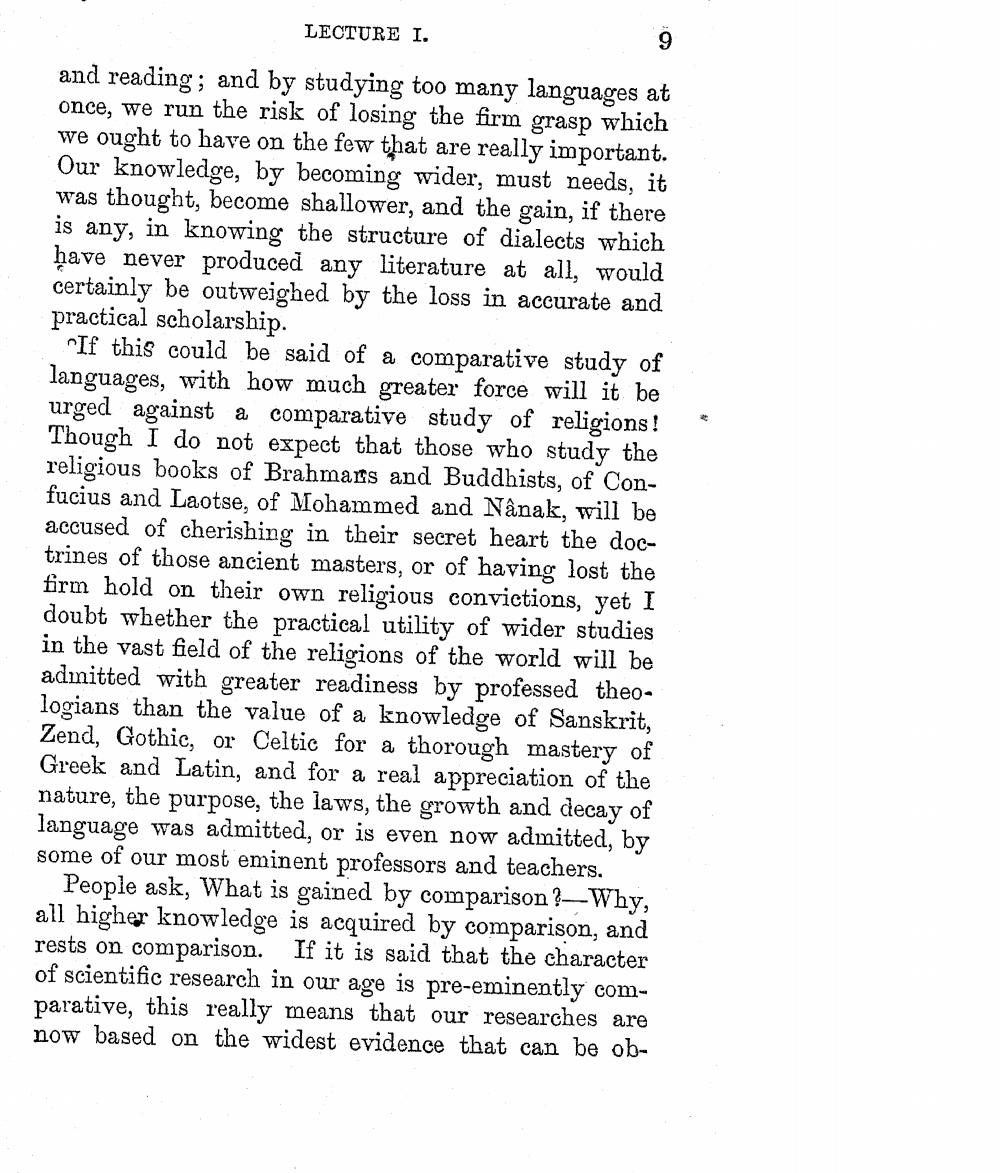________________
LECTURE I.
and reading; and by studying too many languages at once, we run the risk of losing the firm grasp which we ought to have on the few that are really important. Our knowledge, by becoming wider, must needs, it was thought, become shallower, and the gain, if there is any, in knowing the structure of dialects which þave never produced any literature at all, would certainly be outweighed by the loss in accurate and practical scholarship.
If this could be said of a comparative study of languages, with how much greater force will it be urged against a comparative study of religions! Though I do not expect that those who study the religious books of Brahmars and Buddhists, of Confucius and Laotse, of Mohammed and Nânak, will be accused of cherishing in their secret heart the doctrines of those ancient masters, or of having lost the firm hold on their own religious convictions, yet I doubt whether the practical utility of wider studies in the vast field of the religions of the world will be admitted with greater readiness by professed theologians than the value of a knowledge of Sanskrit, Zend, Gothic, or Celtic for a thorough mastery of Greek and Latin, and for a real appreciation of the nature, the purpose, the laws, the growth and decay of language was admitted, or is even now admitted, by some of our most eminent professors and teachers.
People ask, What is gained by comparison ?-Why, all higher knowledge is acquired by comparison, and rests on comparison. If it is said that the character of scientific research in our age is pre-eminently comparative, this really means that our researches are now based on the widest evidence that can be ob




